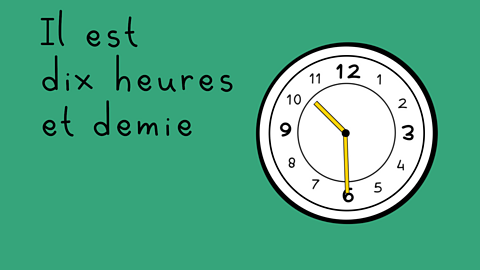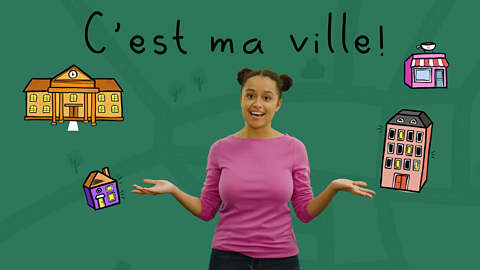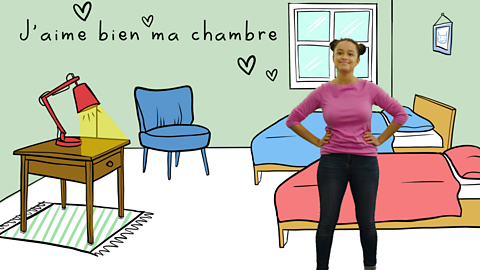Days and months in French
Quelle est la date aujourdâhui? - What is the date today? â
Aujourdâhui łŠâeČőłÙ le premier avril - Today is the first of April. â
When you say the date in French - you say - łŠâeČőłÙ - which means âit isâ followed by le and then the date. â
The months »ćŽÇČÔât have capital letters in French.â
Quelle est la date aujourdâhui?
Aujourdâhui łŠâeČőłÙ le 25 dĂ©cembre. Joyeux NoĂ«l!
Quelle est la date de ton anniversaire? - When is your birthday?â
Mon anniversaire, c'est le 22 janvier.
Remember when you say the date in French you put le before the number: **le ââ22 janvier.**â
Le is also useful when you want to say you do something regularly. â
Le mardi je fais du yoga - On Tuesdays I do yogaâ.
°żłŸ!â
Asking for and giving the date
When you want to give a date, you say the day, then the number and then the month.
In âFrench, you »ćŽÇČÔât need to change the numbers from cardinal numbers (five, 16, 20 âand so on) to ordinal numbers (such as fifth, 16th, 20th, and so on) when you are talking âabout the date.â
To ask what the date is today, say Quelle est la date aujourd'hui? To reply say:
- Aujourd'hui, c'est le jeudi cinq avril - Today is Thursday, 5th April.â
You could also say:â
- Aujourd'hui, on est le jeudi cinq avril - Today is Thursday, 5th April.â
The only exception to this rule is the number one, which is premier, not un:â
- Aujourdâhui, łŠâeČőłÙ le mardi premier mai - Today is Monday, 1st May.â
Days and months »ćŽÇČÔât need capital letters in Frenchâ.
For more useful vocabulary, such as numbers, days of the week and months of the year, click on the downloadable vocabulary list below:

The date in the past and the future
To ask what the date will be tomorrow, you need to use the future tense. On sera means âââwill beâ:â
- Quelle sera la date de demain? - What will the date be tomorrow?â
To reply, again use the future tense and then give the day or date:â
- Demain, on sera le ⊠- Tomorrow will beâŠâ
- Demain, on sera le dimanche vingt-neuf juillet - Tomorrow will be Sunday, 29th âJuly.
If you want to ask what the date was yesterday, use the imperfect tense Ă©łÙČčŸ±łÙ (·ÉČčČő):â
- Quelle Ă©łÙČčŸ±łÙ la date d'hier? - What was the date yesterday?â
As a response, you need to use on Ă©łÙČčŸ±łÙ (it was):â
- Hier, on Ă©łÙČčŸ±łÙ le⊠- Yesterday (it) wasâŠâ
- Hier, on Ă©łÙČčŸ±łÙ le mercredi vingt-huit aoĂ»t - Yesterday (it) was Wednesday, 28th âAugust.â
Describing when you do activities
To talk about an activity you do on the same day every week, use le and then say the âday:â
- Le lundi, je joue au tennis - On Mondays/Every Monday, I play tennis.â
- Le mardi, ClĂ©ment travaille au cafĂ© - On Tuesdays/Every Tuesday, ClĂ©ment works âat the cafĂ©.â
To say that you did something or that you are going to do something on a âparticular day, you just say the day and then use the correct tense to talk about the âactivity:â
- Vendredi dernier, jâai jouĂ© du piano - Last Friday, I played the piano.â
- Mercredi, je vais faire du judo - On Wednesday, Iâm going to do judo.
Talking about your birthday
To ask the question âwhen is your birthday?â in French, you can say âwhat is the date of âyour birthday?â
- Quelle est la date de ton anniversaire? - When is your birthday?
Or, to make it simpler, you could say:â
- Câest quand, ton anniversaire? - When is your birthday?â
Reply by saying âmy birthday, it isâ and then the date of your birthday. â
- Mon anniversaire, łŠâeČőłÙ le six septembre - My birthday (it) is on 6th September.â
Remember to use cardinal numbers (six, 12, etc.) rather than âordinal numbers (sixth, 12th, etc), except when youâre talking about the 1st of the month ââ(when you use le premier):â
- Mon anniversaire, łŠâeČőłÙ le premier fĂ©vrier - My birthday is on 1st February.â
Other peopleâs birthdays
When talking about someone elseâs birthday, you need to say lâanniversaire de, which âmeans âthe birthday ofâ.â
- Quelle est la date de lâanniversaire de ton pĂšre? - When is your dadâs birthday? ââ(Literally, âwhat is the date of the birthday of your dadâ.)
Or to simplify, you can also say:â
Câest quand, lâanniversaire de ton pĂšre? - When is your dadâs birthday?â
L'anniversaire de Jeremy, łŠâeČőłÙ le deux avril - Jeremyâs birthday is on 2nd April. ââ(Literally, âthe birthday of Jeremy, it is 2nd April.)â
â â
Quiz
Find out how much you know about days and months in French in this short quiz.
Game - FestiLingo: French. game
Visit the festival and practise French language skills in this game

More on Topics
Find out more by working through a topic
- count5 of 9

- count7 of 9

- count8 of 9
